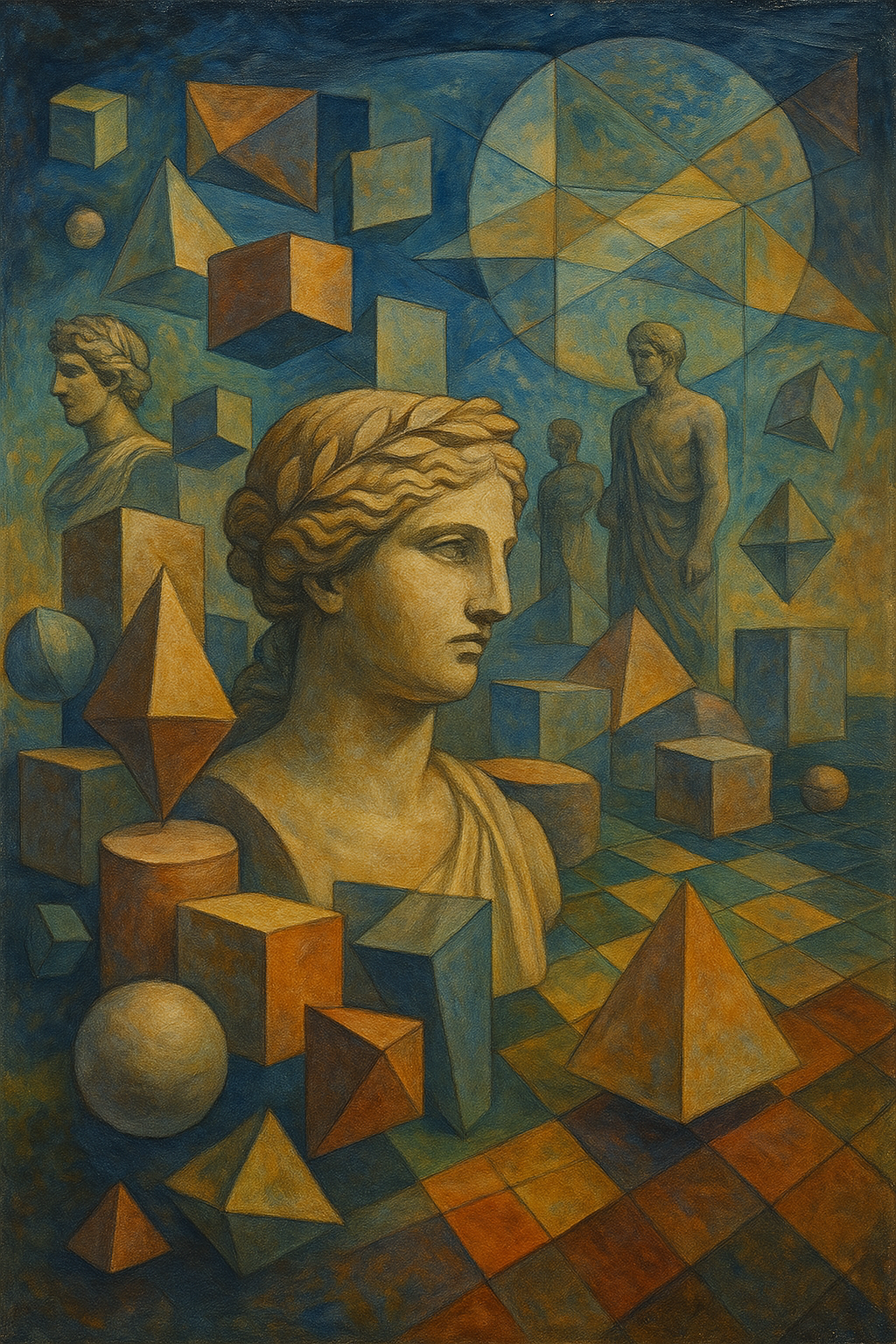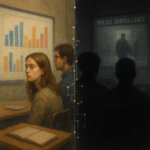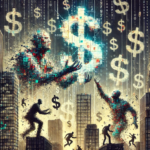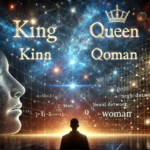My mother has taught English and Language Arts for nearly twenty years. So when she recently asked me, “Do we actually need to know how to read?”
I almost fell out of my seat.
She always imprinted on me how important language, writing, or reading was, it was a building block (and still is) of most of my life.
At first, it sounds absurd, almost an offensive thought.
But her point wasn’t to dismiss reading or writing, to say it is not beautiful or unimportant. She was hitting on a thought that was so much deeper.
George Washington was considered barely literate by his peers, yet he founded a nation.
Albert Einstein had trouble speaking and reading early on, showing classic signs of dyslexia.
Many historians believe Leonardo da Vinci likely struggled with reading disorders and maintaining focus.
Thomas Edison was labeled “slow” by his teachers and withdrawn from school by his mother.
Pablo Picasso, Muhammad Ali, Agatha Christie, all struggled significantly with reading and writing early on and even into their adult life (Despite Christies amazing portfolio of writing).
A measurement of their literacy is not even considered when we call them great.
Yet we’ve built a society that treats literacy as a measure of human worth.
Schools test students endlessly on reading comprehension but rarely ask if they can solve real problems or create something new. Hiring systems scan resumes for written credentials, not for creativity, empathy, or leadership.
Schools, workplaces, and public systems still rank people by how well they navigate written language, often overlooking the deeper, more varied ways humans think, create, and lead.
We have confused a tool with the person holding it.
How many brilliant people today are overlooked, not because they lack insight or potential, but because they don’t fit into this narrow, mechanical frame we’ve built around intelligence?
I had to “brute force” my way into Labs and research institutes because I was a non-traditional student because “expert” is measured by the pages you have written and the works you have read, not by the knowledge you hold .
I was a Florida kid who’s dad overdosed while he was in high school and found him self in the military a few short years later. I had experienced the anger and pain of the Marine Corps, Traveled across the middle east and delved into realms of drugs, depression and insanity yet because I had never published a paper, my word, my thoughts, were ignored and often treated with mistrust because I had not formed my thoughts into the format they believed was required to have a good idea.
Now I am all for working and giving proof of what you have done but often institutions, ideologies, some of the academic world ignore the very real knowledge learned from experience.
I am not anti-academic, but I have noticed some place papers over purpose often.
Despite all this, I “earned” having my works published, spent time giving lectures and consulting rooms full of professors.
I became a researcher at the University of Edinburgh and founder of a company focused on learning and technology.
I did all the things that would get me into the room, get my voice heard.
But all of that work, knowledge reading, memorization pales in comparison to the knowledge, the wisdom, I gained by talking, singing, dancing and hiking through the grand countries of this world. I am so happy I spent the time in the books but I often worry many place the books they read over the people in front of them much like we have in the past.
That being said, some do not do this.
I have worked alongside professors, students, and educators who question not just artificial intelligence, but the entire system of education itself, how we measure thinking, how we define intelligence, and what it means to be “good” at learning.
And every time I hear the debates around AI, I find myself returning to the same thought:
What if we’re repeating an old mistake, the mistake of confusing the process with the person, the tool with the talent? What if, once again, we’re mistaking templates of tradition for progress?
All the while missing the wonder of creation, the curiosity and beauty that makes this life worth living.
Again my mothers statement rings in my head here “Do we need to know how to read?”
Perhaps its better said, how often do we even know what we read.
How often is what we “know” not even a truth to begin with?
Now this line of thought of what understanding even is has been something I have hit on constantly, specifically I write a lot on it in the realm of AI in my article You think, therefore I am.
But to stay focused on the realm of computers and education lets look at something else.
Consider the following quotes through history on “thinking machines”, what people “knew” at the times and how they “knew it”:
“It would appear we have reached the limits of what computer technology can achieve.”
— John von Neumann, 1949.
“I think there is a world market for maybe five computers.”
— Thomas Watson, Chairman of IBM, 1943.
“There is no reason anyone would want a computer in their home.”
— Ken Olsen, founder of Digital Equipment Corporation, 1977.
“computer AI cannot read or write—and will never be able to read or write—novels or any other kind of narrative.””
— Poets & Writers Magazine, 2021.
Yes that last quote is less then five years old, which brings me perfectly to my next point.
Top experts in the field often are not only off in their predictions but blisteringly wrong.
Again this works both ways, plenty of “AI hype” tech bros and CEO’s are missing plenty of the issues and predictions of AI.
Are there risks? Are there dangers and exploits?
Absolutely. I do not want to have this writing push a hype that overshadows the many real problems that exist, I am spending every day tackling the ethical and structural issues of Ai in education right now as I think it is the most important front.
But the important focus is this:
Today, sophisticated language models write emails, poems, and even novels, and billions converse daily with digital assistants.
We can create images directly related to the meaning of our words, with math, with electricity and silicone.
How often do we stop and think about what it means to talk to math?
To paint with numbers?
Something unimaginable just a few years back is already taken for granted.
We’ve seen this pattern before. We normalize things we barely understand, then forget how impossible they once seemed.
We forget how long the road was to get here.
Everyone debates what AI can or can’t do…
But few stop to realize it was once thought impossible by many of the “top” minds of times long past .
AI didn’t sneak up on us, we sprinted past its miracle without looking.
The real question isn’t what AI will do next. It’s whether we’ve learned to look past the tool and see what matters.
What assumptions are we quietly carrying into this new era?
What human potential are we failing to recognize, simply because it doesn’t show up in the data?
Are we building systems, making arguments, that expand possibility, or ones that quietly limit what it means to create?
Maybe the real question isn’t whether we need to read or not.
Maybe it’s about how we define, and assess, learning itself. We’ve built entire systems around grading, testing, and sorting, convinced that a numeric score or written test can somehow capture creativity, passion, or true understanding.
But what happens when those numbers fail us? When the tests don’t show the insight of someone who’s spent a lifetime listening, exploring, or making mistakes far outside the classroom walls?
AI forces us to reconsider these assessments.
It can mimic essays, pass exams, even generate profound-sounding statements, but it hasn’t lived a day of human experience.
If our current assessments can’t tell the difference, what exactly are we measuring?
Maybe the solution isn’t smarter tests or tougher standards, but a willingness to recognize intelligence and creativity wherever they appear, especially when they defy our usual expectations.












Meera
29 April 2025 — 20:01
How much of the real world is captured by AI? Perhaps, very less now but it can improve. But also, human beings adapt to changing technologies and in turn alter existing dimensions of sociality. And what we would get beyond books, through other interactions also go through that change. Just thinking with you.